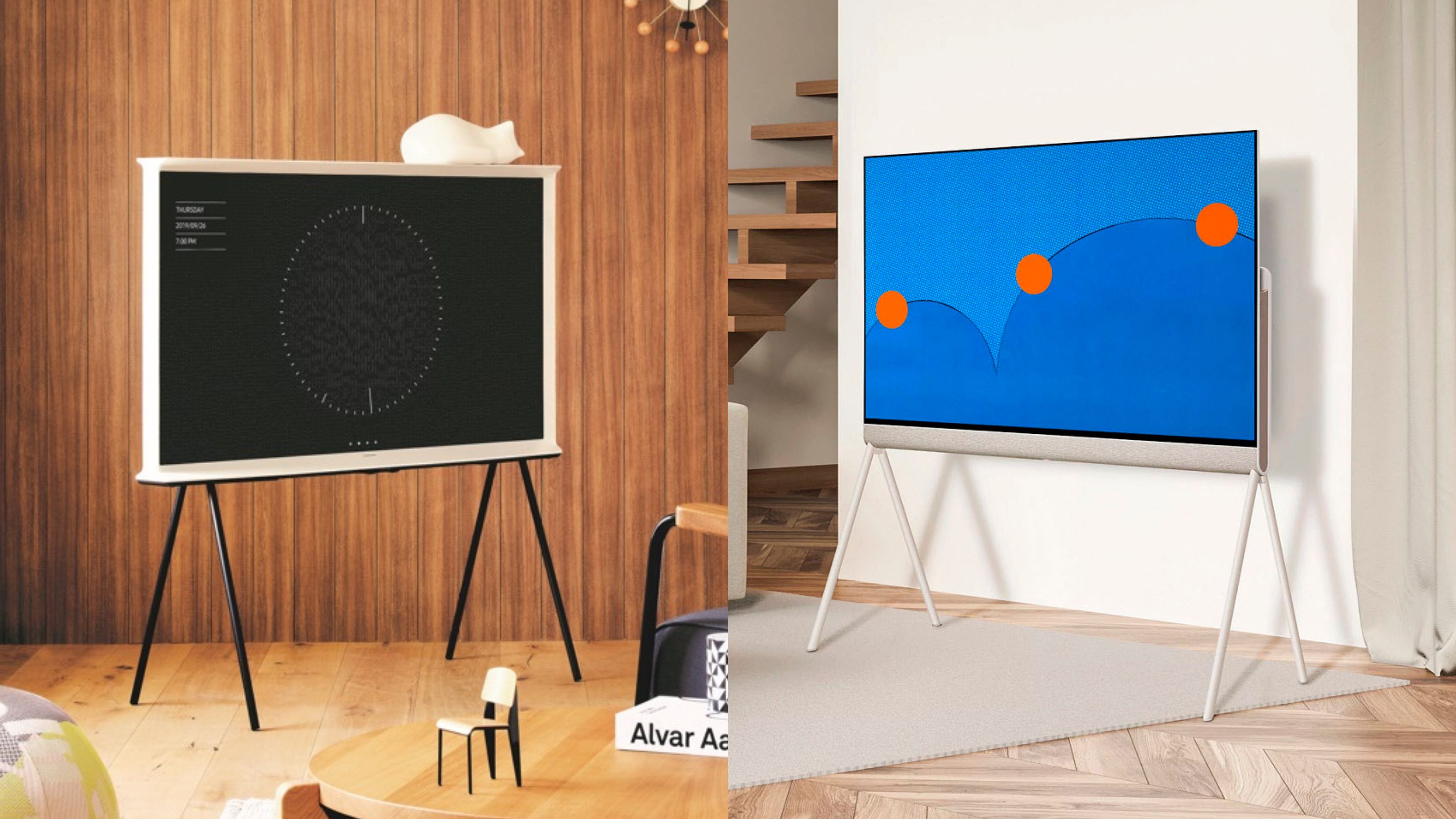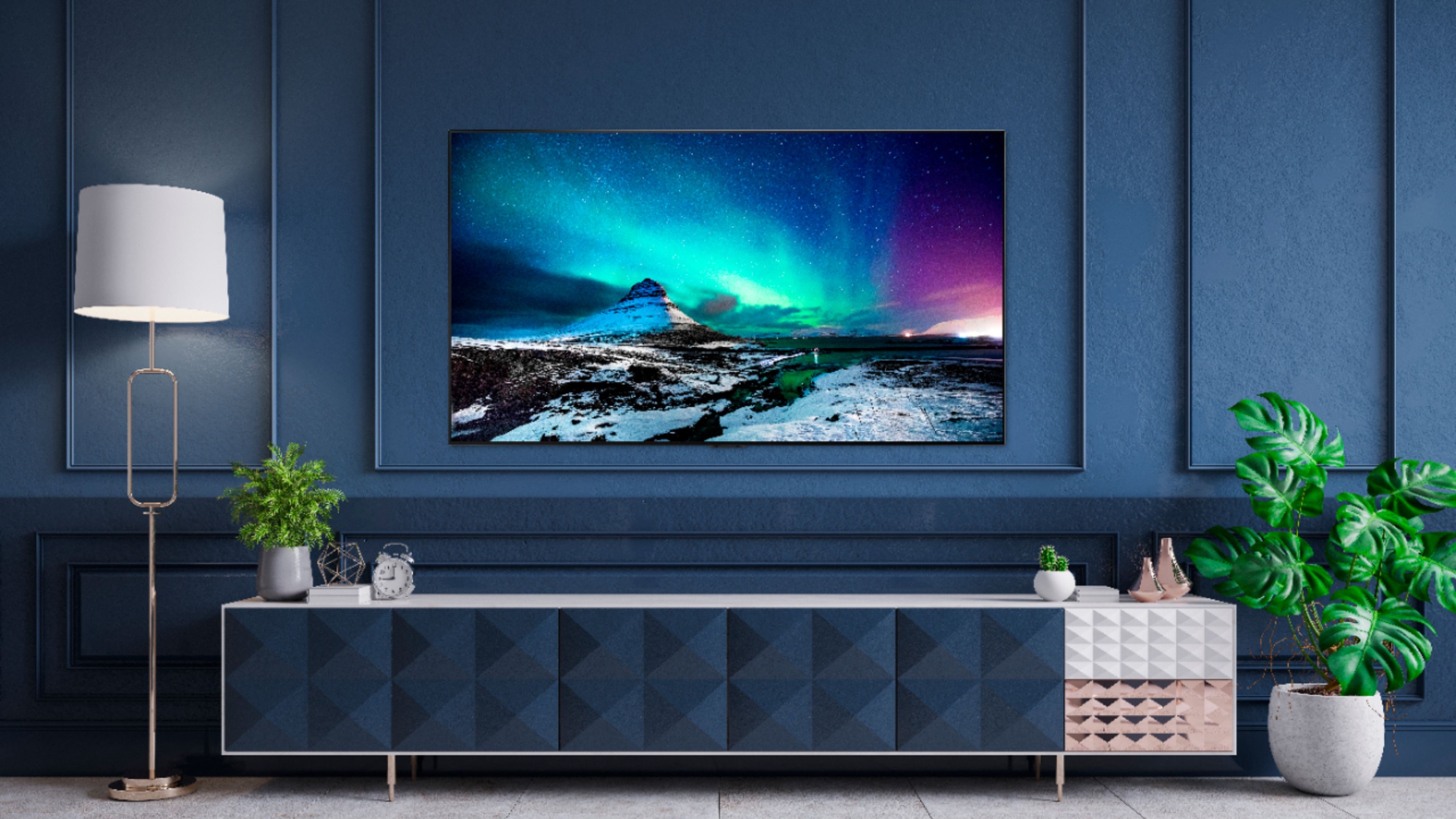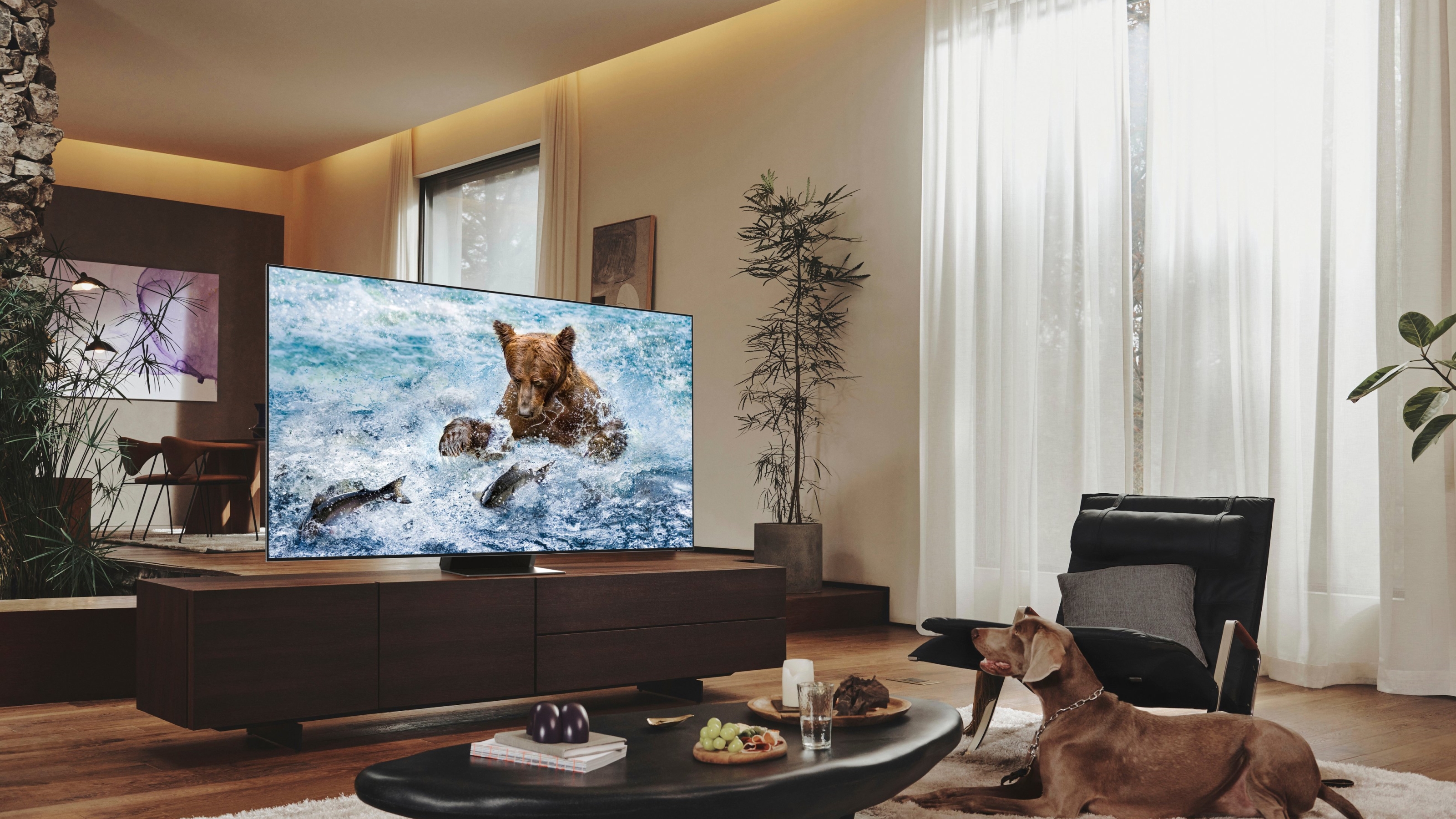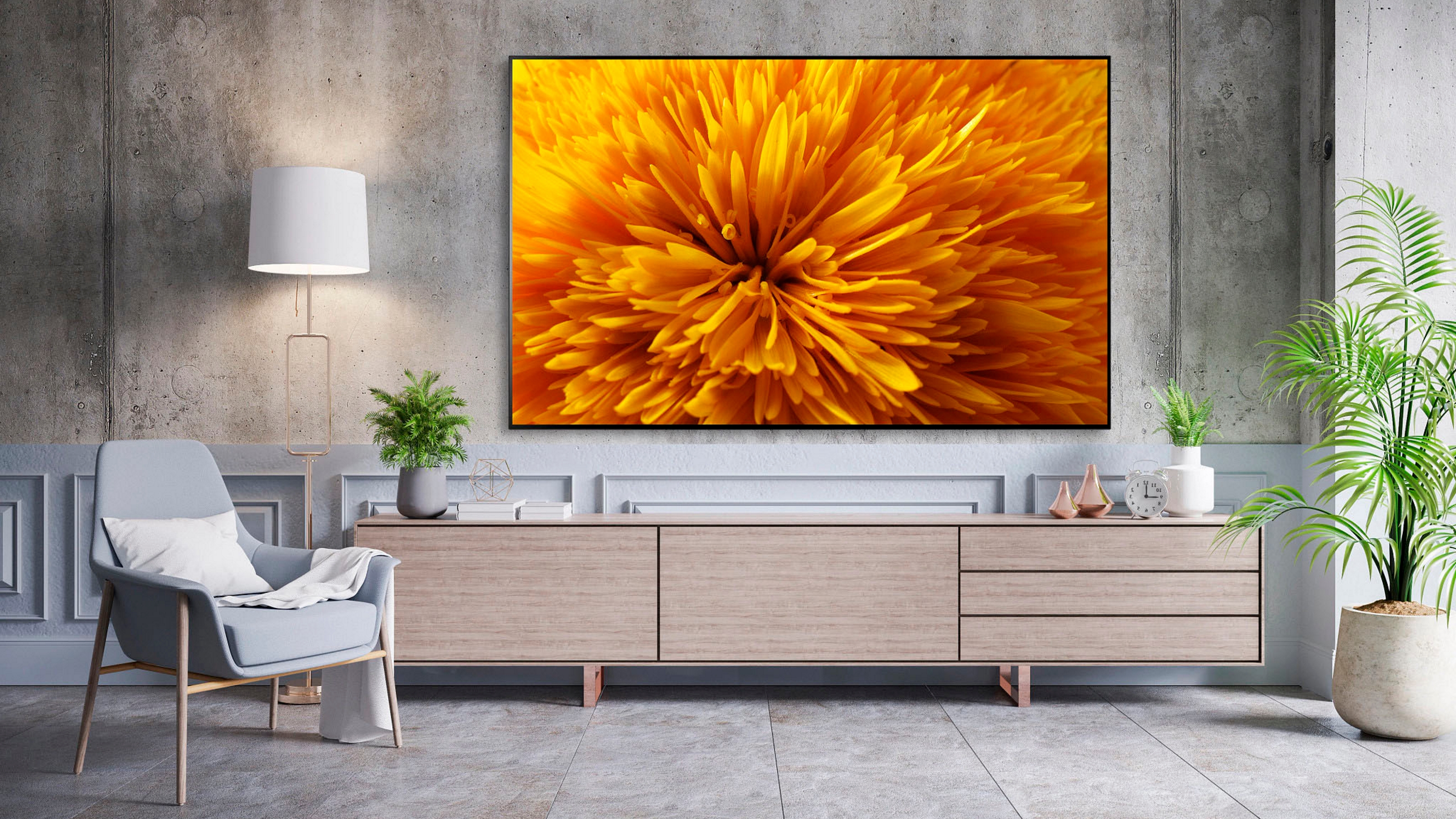
When it comes to TVs, Samsung and LG make some of the best-rated sets around. Deciding between the two giants can be tricky, especially as both brands make products that span the price gamut from cheap and cheerful to ultra-premium.
However, there are some things you should remember when you are trying to decide between an LG or Samsung TV. While an expensive LG TV will beat a cheap Samsung set and vice versa, these points may help push you one way or another when looking at two sets in a similar price bracket. We'll also discuss the difference between OLED TVs and Samsung's alternative technology - QLED.
Keep reading to discover the key differences between Samsung and LG TVs, or visit our guide to the best TV brands for a more in-depth comparison.
- You can find out which models we chose as the best Samsung TVs and best LG TVs in our respective guides.
Samsung vs LG TV: What's the difference?

When comparing Samsung and LG TVs, several factors significantly influence the price. One of the key differences is resolution, with 4K being the optimal choice for clarity and value. The screen size also directly impacts the cost, with larger screens typically carrying a higher price tag. While budget-friendly options may feature LCD panels, higher-end Samsung TVs offer more premium features, setting them apart from their LG counterparts.
Resolution, which is measured in pixels, and screen size are key factors to consider. In 2024, 4K resolution is considered the sweet spot, offering a good balance. Larger screens also come with higher prices, and there is a significant difference in area between sizes. While budget sets may use LCD panels, premium models highlight the noticeable differences between LG and Samsung TVs. Keep these factors in mind when choosing an LG TV to ensure that you get the best value for your needs.
Samsung vs LG TVs: Display technology

Samsung is known for promoting QLED technology, but it has recently started introducing its first OLED panels. Samsung's QLED technology enhances LED panels in budget-friendly sets. While the pixels don't individually light up like with OLED, QLED includes multiple dimming zones and utilizes quantum dots to improve color and contrast. Look out for mini-LED QLED sets, such as the QN90A Neo, as they feature smaller backlights for more precise control.
Though not quite on par with OLED in ideal conditions, QLED's enhanced brightness makes it well-suited for bright rooms and daytime viewing. This makes QLED a compelling choice for those seeking impressive picture quality and performance, especially in spaces with ample lighting.
LG is renowned for its OLED panels and even produces them for other companies. LG provides state-of-the-art display technologies, such as OLED and NanoCell. OLED, which stands for 'Organic Light-Emitting Diode,' boasts individually lit pixels, delivering exceptional immersion in dark scenes and incredible contrast. However, it may have lower peak brightness and a risk of burn-in.
On the other hand, LG's NanoCell technology, similar to QLED, utilizes nanoparticles to enhance colors and contrast, offering an affordable alternative to OLED panels. Both technologies have their pros and cons, making them suitable for different preferences and environments.
Samsung vs LG TVs: Formats and operating systems

When comparing Samsung and LG, both offer similar picture quality, but Samsung uses HDR10+ while LG uses Dolby Vision. HDR10+ supports a 10-bit color gamut, while Dolby Vision offers 12-bit and is more widely supported.
Samsung uses Tizen as its operating system, which supports major streaming apps and voice assistants like Alexa and Google Assistant. Samsung also promotes its own Bixby assistant. Additionally, Samsung's high-end TVs have a user-friendly "Magic Remote" with a mouse-like pointer for easy navigation. Samsung's Tizen OS provides a seamless experience for users who prefer Samsung's ecosystem and voice assistant integration.
LG supports Dolby Vision, which boasts a 12-bit color gamut, while Samsung opts for HDR10+. LG's WebOS and Samsung's Tizen also support major streaming apps and voice assistants like Alexa and Google Assistant.
LG's high-end sets feature the "Magic Remote" for intuitive on-screen navigation, but, ultimately, the decision between the two largely revolves around personal preferences, as both brands offer high-quality pictures and features. Whether Dolby Vision, WebOS, or the Magic Remote, LG TVs provide an appealing user experience.
Samsung vs LG TVs: Which should you choose?
Best for: style-conscious users
Samsung TVs are an excellent choice for those with a style-forward living space, offering lifestyle TVs such as The Frame and Serif. Samsung is known for its mid-range and high-tech options, providing a wide selection of 8K and 85-inch models. Samsung's commitment to innovative technology and stylish design also makes their TVs a great fit for modern living spaces. Whether looking for top-notch picture quality, sophisticated design, or high-tech features, Samsung TVs provide a compelling option to enhance your home entertainment experience.
Best for: those who want the best tech
LG TVs are highly regarded due to their budget-friendly options and the use of OLED panels, currently the best screen technology available. LG offers the best budget models and is favored for its high-quality OLED panels. LG's Signature range and the LG Posé also provide high-end options for those willing to make a substantial investment. Whether you're looking for affordability or top-notch technology, LG has a wide range of options.







